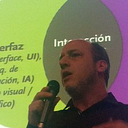Thank you for sharing your thoughts and taking the time to engage with the article. I appreciate your perspective and the critique you offer.
When you say, "We, the designers, have also been infatuated with the latest toys," I understand where you're coming from, but I have to say you're likely speaking from your own experience. Since its early days in 2003, IxDA has never focused on tools or trends. In my role as a Regional Coordinator for IxDA back in 2010, I encouraged local leaders to focus on real, professional challenges that their communities faced – and "toys" or tools were never at the center of the conversation. If you're part of a community that is overly focused on the latest gadgets, I’d suggest reconsidering that approach; UX has always been about much more than that.
When you mention "building a stronger deck of cards," I respect that, but I think many of us have already been through those battles, especially when it comes to dealing with the tough dynamics in organizations. For example, as described by Tom DeMarco in Peopleware, there are managers whose micromanagement takes a toll on teams. In these cases, empathy alone may not be enough. That's where negotiation skills – like those taught by Chriss Voss, a former FBI hostage negotiator – can come into play. It's about understanding the full toolkit required to handle complex, real-world challenges.
As for "understanding our organizations and managers' needs," I believe this has been a focal point for many of us for the last two decades. What we've often discovered is that some managers don't just lack empathy for users, but they may also be indifferent to business outcomes. The solution, then, is not simply more empathy, but a more strategic approach.
That said, I value the discussion. If you're looking to "build a stronger deck of cards," listening to and learning from those who have been shaping the field for the last 15 years could provide valuable insights. Rather than jumping to conclusions or dismissing experienced, direct viewpoints as "radical" or "management by fear", we can all benefit from a shared, ongoing dialogue within the community. There's always more to learn.
